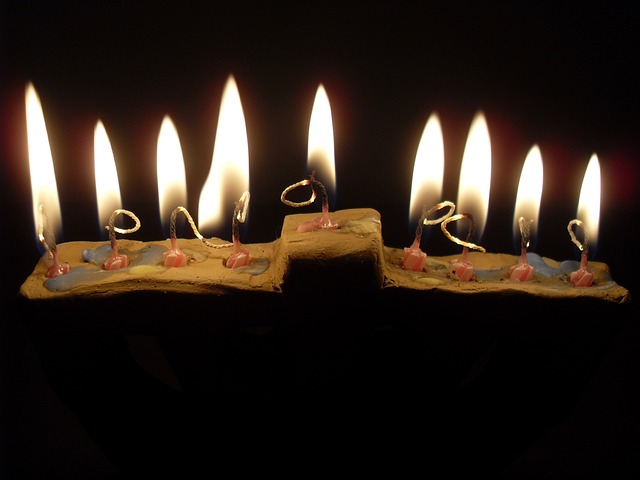With Thanksgiving officially behind us, we begin our approach to Christmas complete with parades, shopping, decorating and baking. Over the next few weeks billions of presents will be purchased and even more cards sent to celebrate Jesus’ birth.
Just before Christmas, however, is a Jewish holiday known as Hanukkah. This year, Hanukkah begins on December 18th and continues through the 26th. It commemorates a miracle that took place 164 years before Jesus was born.
In 168BC, the Seleucid king, Antiochus IV had lost an invasion into Egypt and took out his anger on the Jewish people instead. He ruthlessly slaughtered some 40,000 Jews in Jerusalem and enslaved another 40,000 besides.
This cruel general called himself Epiphanes which means god manifest indicating what he thought about himself. Many of his subjects, however, had a different name for him. They secretly called him Epimanes meaning madman which was a much more appropriate title.
In extreme hatred and anger Antiochus desecrated the holy Jewish temple, stopped the sacrifices, burned all the Torah scrolls, and outlawed the Sabbath, circumcision, and the Jewish diet. The height of this man’s sacrilege, however, occurred on December 14, 168BC when he put an idol of Zeus in the Holy of Holies of the Jewish temple and sacrificed a pig on the sacred altar.
Thankfully God delivered His people from this cruel oppressor through a resistance effort led by Judas Maccabeus. After a prolonged struggle, the Jews drove the Syrians out of Jerusalem and they began to cleanse the temple, rebuild its altar and re-consecrate the holy utensils.
In this rededication, they also relit the seven branched lampstand which was to be kept burning before the Lord at all times. Although there was only enough olive oil for one day, miraculously, the flames continued to burn for eight straight days allowing them to secure more oil to refill it.
This miracle which occurred in 164BC was commemorated afterward with the eight days of Hanukah, or Festival of Lights, still celebrated nearly 2,200 years later. Each winter many Jewish families light their own menorahs as a reminder of God’s faithfulness and how He was and is still able to bring light out of darkness.
Although Hanukah is not mentioned by name in the Bible, the celebration is referred to in John 10 where it is called the Feast of Dedication. Jesus was apparently observing this feast with other Jews in the temple courts when he was approached and asked directly if He was the messiah that God had promised to send to save His people.
In answer to their questions, Jesus made some incredible claims including when He said, “I and the Father are one.” He also said, “The Father is in me and I in the Father.” Either Jesus was mentally deranged or He was blatantly lying or He was telling the truth.
Because they clearly saw this as blasphemy, the Jewish leaders were about to stone Him until he spoke further. To back up His incredible assertion that He was one with God, Jesus invited them to consider the miracles He had performed and determine from whence they came. In fact He told them, “Do not believe me unless I do what my Father does.”
It’s particularly interesting that Jesus made these claims at the Festival of Light for in the first chapter of his Gospel, John calls Jesus the true light of the world that shines in the darkness that cannot understand or overcome it. As such, Jesus would need no resupply of oil but would rather give light to all who would receive it.
As we enjoy the lights of both Hanukah and Christmas over the next few weeks, let’s remember what Jesus said about Himself in John 8:12, “I am the light of the world. Whoever follows me will never walk in darkness, but will have the light of life.” Behold, receive, and share Jesus’ light.
Blessings, George
